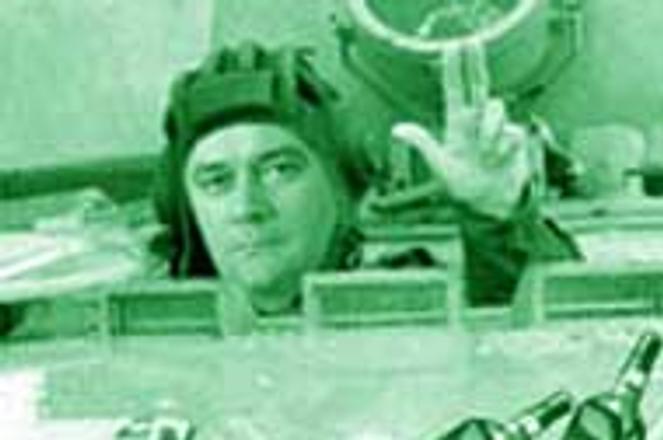Far-right politician Ján Slota has sounded the call to advance on Budapest. All that is required is a lack of tact, a poor grasp of history and a weakness for public intoxication.
March 5: Ján Slota, leader of the far-right Slovak National Party (SNS), makes a drunken speech in which he threatens to advance on Budapest in tanks and flatten the city. "We will fight," he cries, "for every square metre of our land."
March 12: Hungary, Poland and the Czech Republic join NATO. Slovakia does not.
March 14: Slovakia celebrates the 60th anniversary of the World War II Slovak state, a Nazi puppet regime hailed by Slota's party as a source of national pride.
Ján Slota is not the first Slovak politician to embarrass his country, nor will he be the last. But in his own bombastic, bigoted way, he offers an outstanding explanation of why Slovakia was not asked to join NATO along with its neighbours.
Slota is, first and foremost, proof of the immaturity of the country's politiciáns. The political 'message' of his SNS party is one of intolerance and hatred - of Hungarians, Romanies, unemployed people and other groups it refers to as 'parasites.' Slota himself is remembered for a notorious 1995 remark that solving the 'Gypsy problem' was a matter of "a small courtyard and a long whip."
Given that Slota and the SNS played a major role in the government of Prime Minister Vladimír Mečiar from 1994 to 1998, it is understandable that western alliances have kept Slovakia at arm's length, much as one might an ill-mannered and importunate child. After all, if you look around, few other countries' politicians produce the kind of vulgar, racist drivel that Slovak MP's manage to.
In France, a secure if quarrelsome member of both NATO and the EU, far-right leader Jean Marie Le Pen was chucked out of parliament and is under criminal investigation for a far less incendiary speech than Slota's 'flatten Budapest' diatribe. In Russia, at the far end of the political maturity spectrum, fascist sniveller Vladimír Žirinovský was given a half hour of air time on national TV on March 8 to flay Poland, Hungary and the Czech Republic for joining NATO.
In terms of its political culture, Slovakia is clearly still closer to the Russian camp than the French. The Mečiar years were a rich treasury of Žirinovský-style political utterances: When asked by then-opposition politician Ján Čarnogurský where he had been on the night that the President's son was kidnapped, Mečiar replied "Ask your wife"; at a political rally for his HZDS party in 1997, Mečiar made jokes featuring Czech Prime Minister Václav Klaus with a Czech banknote lodged in an unnatural location. It is hardly surprising, then, that NATO and EU officials have decided to wait and see if Slovak political leaders can button their loose lips.
But the boorish behaviour of these men is only part of the problem - the other half of the NATO equation, for Slovakia, has been that political Neanderthals like Mečiar and Slota still play to packed houses.
According to recent polls, Slota's SNS party enjoys the support of 10 to 13% of Slovaks, and is particularly strong in the north of the country. This should not be a surprise - as any foreigner who lives for some time in Slovakia discovers, even educated, cosmopolitan and liberal-minded Slovaks can seem astonishingly prejudiced if the conversation veers to Hungarians or, especially, Gypsies. Given the heightened sensitivity of western societies to racist-sounding remarks and opinions, it should also not be surprising that NATO countries have taken note of what Slovak citizens permit their politicians to say.
There are signs, however, that things are changing on both sides of the old Iron Curtain. Slota's remarks were roundly criticised by all parties, including the SNS, and police investigators are already examining the case to see if charges can be laid. Washington, for its part, has been careful to stress that the admission of the three new NATO members has not closed the door for Slovakia.
But for all the official condemnation of Slota's remarks and the encouraging signs from the west, a smell lingers in the air - perhaps the feeling that NATO was right to delay Slovakia's entry, and that March 14, 1939 is not as far behind us as we like to believe.

